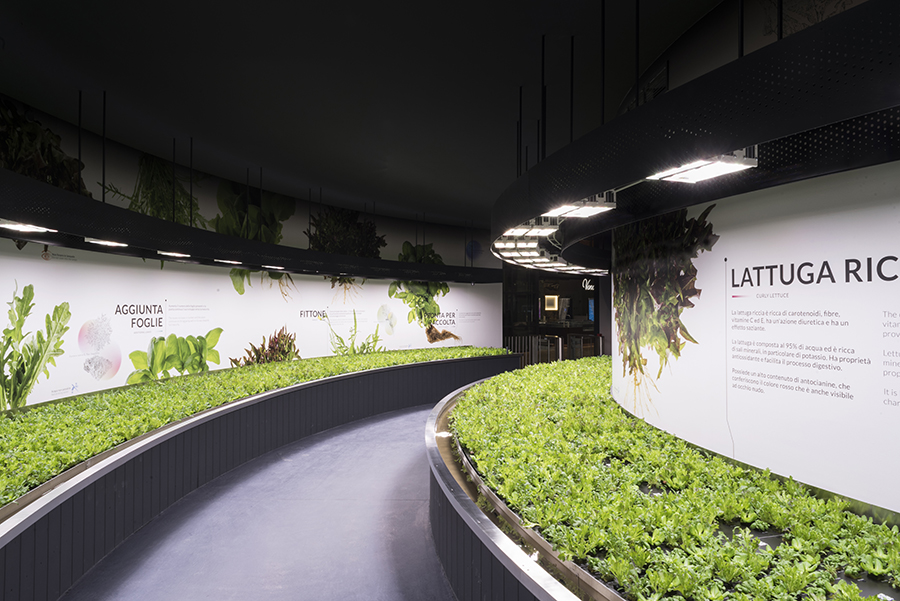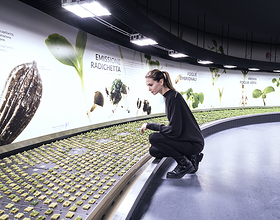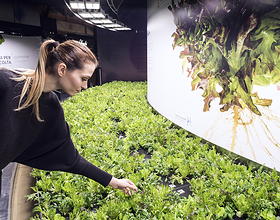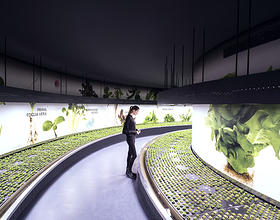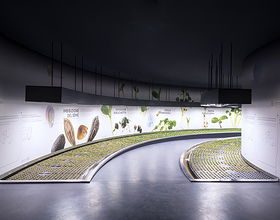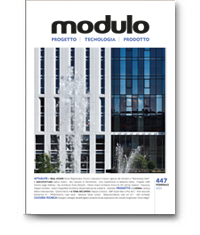HORTUS
-
International design and innovation office Carlo Ratti Associati (CRA), in collaboration with FICO Eataly World, has designed “Man and the Future – Hortus”, an interactive pavilion where people can engage with digitally-augmented farming and grow their own food on-site. The project pairs hydroponic practices with online data collection, paving the way for a new type of collaborative, in-store cultivation system in which anyone can become a food producer.
With its disruptive vision for the food industry, the project is among the highlights of FICO Eataly World, the 100,000 square meter edutainment park opened on November 15th, 2017 in Bologna, Italy.
Visitors enter the “Hortus” circular pavilion – one of FICO’s six multimedia carousels” – and follow an immersive route that leads to a vast indoor hydroponic vegetable garden. Here, anybody can choose to plant seeds in a hydroponic tank and start monitoring their growth.
“Moving through the space of the pavilion will be like moving through time”, says Carlo Ratti, director of the Senseable City Lab at the Massachusetts Institute of Technology (MIT) and founder of CRA: “As you walk through, you will observe the progression of plant growth: from seeds and sprouts at the entrance of the farm to fully developed plants after a few meters.”
By utilizing sensors that measure the plants’ status, visitors are connected to the farm digitally and are able to access it remotely, from the “Hortus” web app (www.hortus.eatalyworld.it). Once a person plants a seed in the hydroponic farm, an Internet-of-Things device will match his or her profile with that of the corresponding plant. Using the web app, the visitor can then track the state of the plant’s biological data, its level of growth, and even share it on social media. At “Hortus”, you can sow seeds of basil, curly lettuce, wild rocket, and butter lettuce. Once the plant is finally ripe, it will be collected to be eaten.
“Those of us who grew up on a farm know the feeling of planting a seed and then obsessively checking on its progress each day. It’s like discovering the magic of life as it progresses. We wanted to make such an experience accessible to everyone, even those who live in the depths of the city,” adds Ratti. “This sort of urban farming will probably never be able to satisfy all of our cities’ feeding needs. But it does allow us to create a more direct relationship between urbanites and nature. As in Kurt Tucholsky’s old poem ‘The Ideal’, in which the German writer dreams of a house where one side faces the bustling center of Berlin and the other side faces the Alps, we might have future cities that better combine urban life and nature.”
Photo credits: Carlo Ratti Associati
1869 Projects

